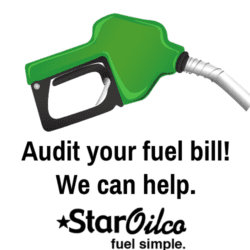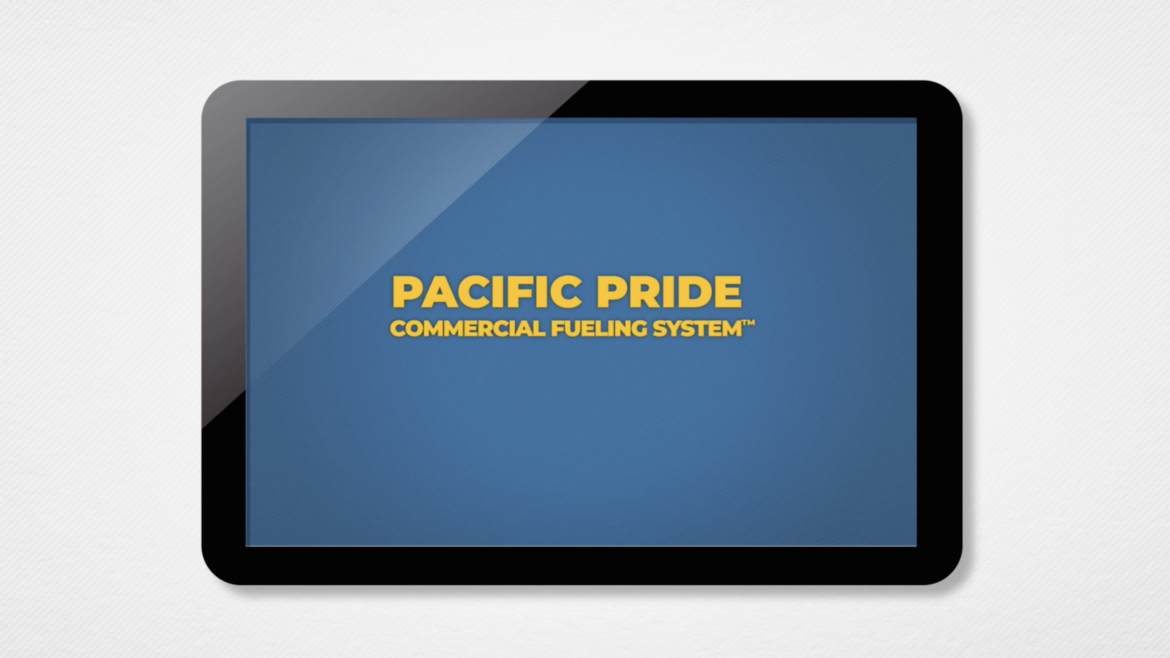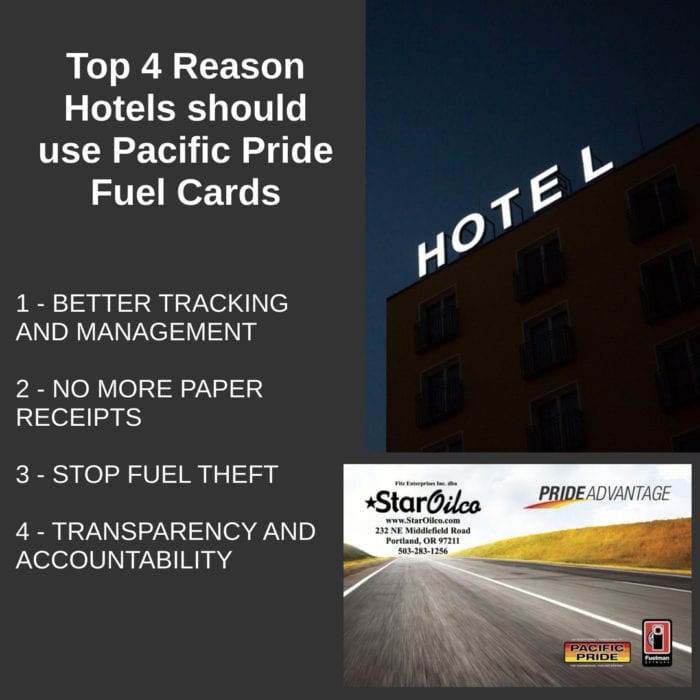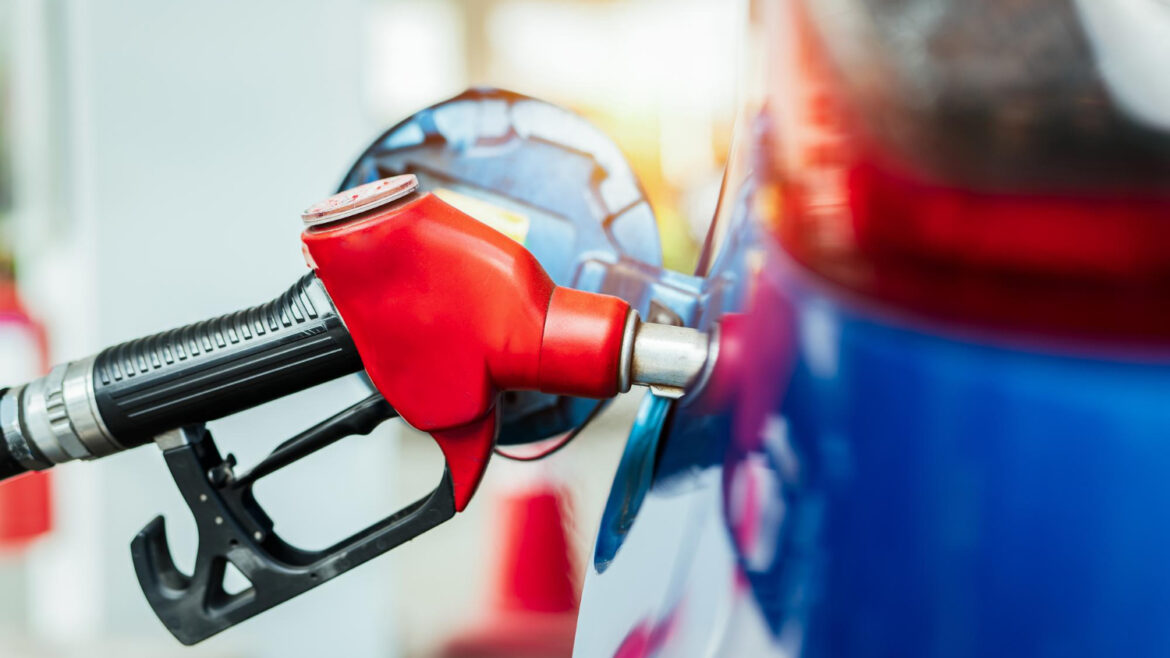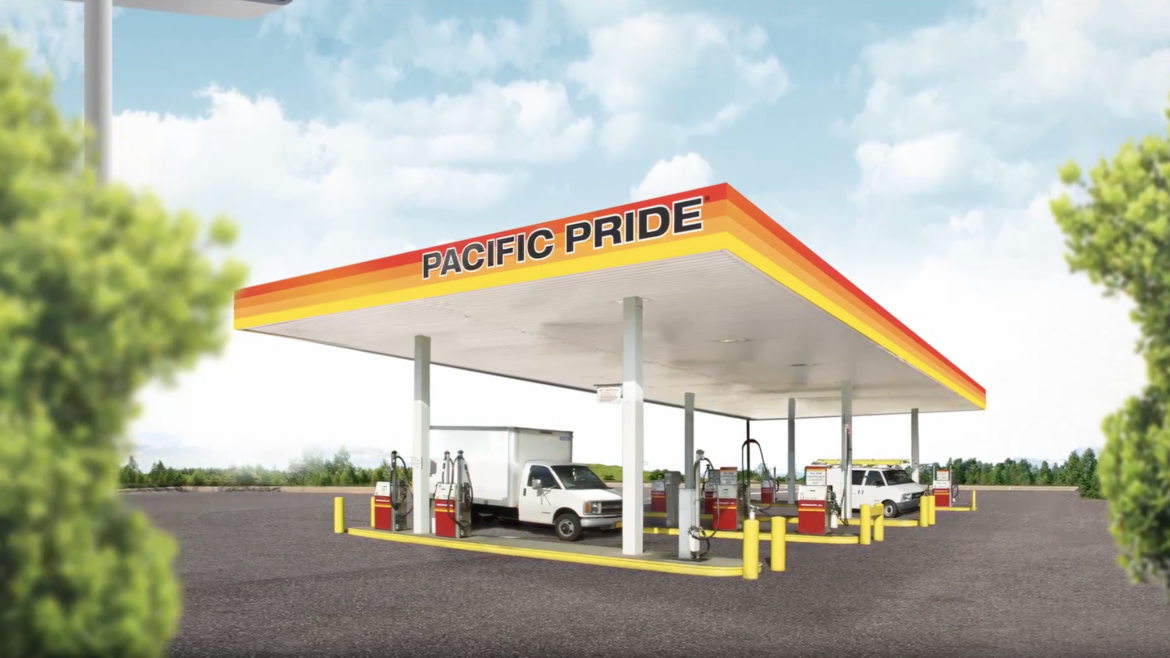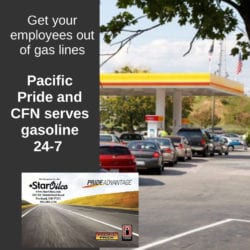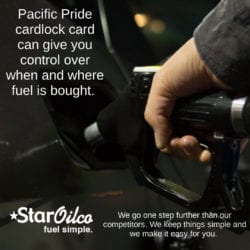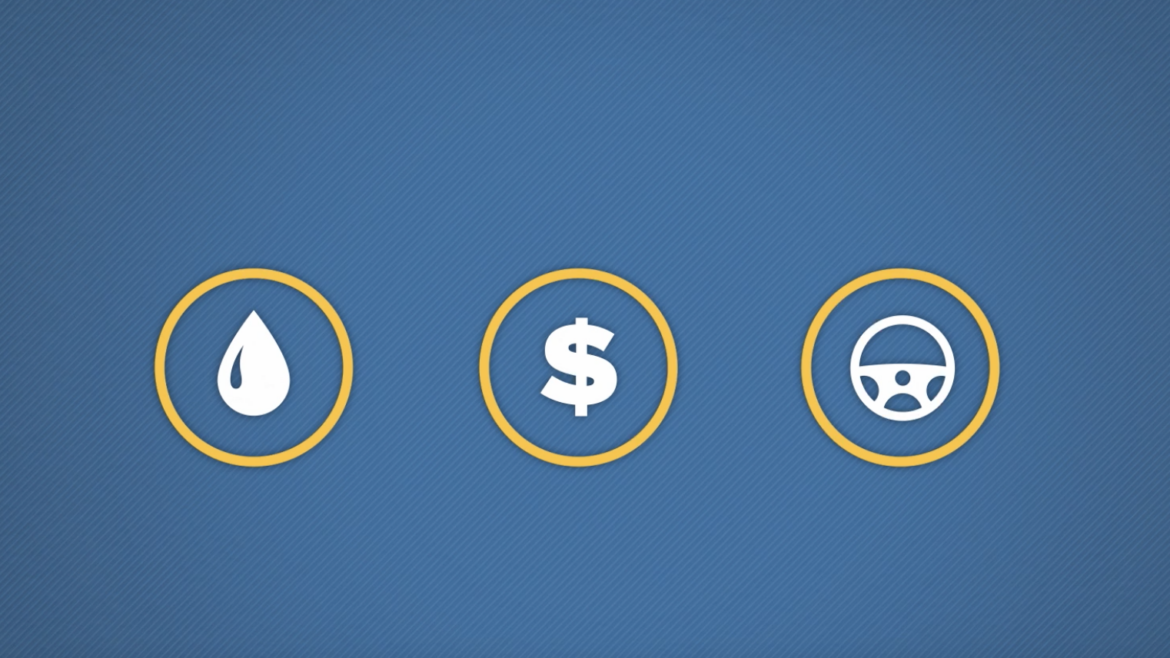What is Heating Oil?
In the Pacific Northwest heating oil is diesel
New heating oil customers often ask us, “What is heating oil?” Heating oil is diesel fuel and there are several grades and types. For Star Oilco our standard heating oil product is a ultra low sulfur diesel with a 5% biodiesel blend in order to meet Oregon mandates for off-road diesel fuel. That way our heating oil trucks can also serve construction fueling, emergency back up generators, and other common off-road diesel uses.
Star Oilco has a simple Heating Oil FAQ available.
For full on fuel nerds though, check out this more in depth deeper technical dive below. If we leave anything out please don’t hesitate to ask for those seeking a nerd-level understanding of heating oil, kerosene and bioheat.
There are three typically grades of heating oil you can order
Number 1 Diesel
Number 1 diesel is also called Kerosene or Stove Oil. This fuel has a lighter specification than typical heating oil which enables it to burn better in a “pot burner” or wick heater. Kerosene has its own specification as the fuel used by wick heaters. Kerosene is typically Number 1 diesel but not all Number 1 diesel’s are kerosene due to the need to be taken up by a wick heater. Any biodiesel content in a kerosene product WILL NOT work in a wick kerosene heater. So be very aware of confirming that your kerosene has never come into any contact with a biodiesel blend of fuel.
Red Number 2 Diesel
Red dyed diesel also called Heating Oil, Dyed Diesel, Off-Road Diesel is the default heating oil fuel. The fuel is dyed red to denote no on-road fuel taxes are attached to it. When you call and ask for heating oil, this is the fuel you are requesting. Clear or Green Number 2 Diesel is the fuel sold at retail gas stations and truck stops. That fuel will also work in your furnace, you just are paying for on-road taxes attached to that fuel.
Bioheat or Biodiesel Heating Oil
“Bioheat” is a blend of biodiesel and petroleum diesel to make a lower emission and lower CO2 heating fuel. Typically Bioheat is Number 2 Heating Oil with a 20% blend of biodiesel or higher in it. It is a drop-in fuel for your heating oil furnace. There is no change other than routine maintenance is required. It is a cleaner burning fuel with a significant drop in CO2 emissions associated with your heating oil fuel consumption. If you would like more information on biodiesel as a heating oil you can follow this link.

Where do heating oil companies get their fuel?
In the Portland, Oregon market, diesel is fungible. Everyone buys or is expected to mix their fuel from each other in some way. Primarily this is due to the Portland/Vancouver market receiving most of its fuel down the Kinder Morgan-operated Olympic Pipeline. Which means all the refiners transporting fuel are mixing their product in transit. Additionally, there are shared terminal locations, which also have co-mingled owned diesel products.
Every refiner is typically expecting to mix their diesel and gasoline products. The difference is in the care a vendor takes to filter the fuel, using additives and continuously check their fuel quality. If you are buying at the absolute lowest price possible, know that there is an incentive to skip any added value of quality assurance.
Star Oilco buys our diesel products from a variety of vendors. The source refiner typically being either BP, Shell, Marathon(formerly Tesoro), Phillip 66, or a number of other refiners.
Portland, Oregon and Vancouver, Washington are not unique in in having fungible diesel and heating oil fuel specifications. Through its Pacific Operations unit, Kinder Morgan operates approximately 3,000 miles of refined products pipeline that serves Arizona, California, Nevada, New Mexico, Oregon, Washington and Texas. With roots dating back to 1956, it is the largest products pipeline in the Western U.S., transporting more than one million barrels per day of gasoline, jet fuel and diesel fuel to our customers. The company-owned terminals also provide additional services, such as liquid petroleum product storage and loading facilities for delivery trucks.
The heating oil and biofuel blends Star Oilco sells its customers
Heating oil is essentially off-road diesel. You can legally use a higher sulfur content for boilers and heating systems than you can off-road equipment and back-up generators. Regardless, we sell the lowest sulfur fuel available and optimize our fuel to be as versatile to our customers as possible. Construction equipment, back up generators and a host of others systems use off-road diesel, as do heating oil systems. Star Oilco sells the same diesel fuel specification for all of our off-road uses.
We also blend this fuel with biodiesel for our customers that want higher blends of low CO2 biodiesel fuels and heating oil. Star Oilco carries nothing but ultra low sulfur diesel fuels. In fact, our minimum blend of biodiesel is a B5 biodiesel blend (5% biodiesel and 95% petroleum diesel) and we also offer B20 (20% biodiesel blend) and B99 (99% pure biodiesel) for our customers.
About Diesel Fuels Specifications
In the United States, diesel fuel is controlled according the American Society for Testing and Materials Standard D975-97. This standard describes a limited number of properties that diesel fuels must meet. It should be noted that the requirements are all performance-based, meaning they do not mandate the composition of the fuel, only the specific performance related requirements demanded of a fuel for a diesel engine. The requirements of D975 are described below.
ASTM Specifications for Diesel Fuel Oils (D975)*
*More info on ASTM specifications
Diesel fuel is characterized in the United States by the ASTM standard D975, which identifies five grades of diesel fuel. We are only going to talk about the two most popular commercially diesel fuel used — No 1 and No. 2 diesel. The ASTM D975 standard is made up of a series of different tests that check the characteristic ranges of a fuel to confirm it is adequate to operate in your equipment.
In simple terms, they are checking for specific gravity, the vapor point (when it turns into a gas), the flash point (when it catches fire), the dirt content, water content (how much microscopic entrained water) and a host of other requirements diesel must meet in order to be legal to be sold for use in your engine.
Grade No. 1-D and Ultra-Low Sulfur 1-D:
This is a light distillate fuel for applications requiring a higher volatility fuel to accommodate rapidly fluctuating loads and speeds, as in light trucks and buses. The specification for this grade of diesel fuel overlaps with kerosene and jet fuel, and all three are commonly produced from the same base stock. One major use for No. 1-D diesel fuel is to blend with No. 2-D during winter to provide improved cold flow properties. Ultra-low sulfur fuel is required for on-highway use with sulfur level < 0.05%.
Grade No. 2-D and Ultra-Low Sulfur 2-D:
This is a middle- or mid-grade distillate fuel for applications that do not require a high volatility fuel. Typical applications include high-speed engines that operate for sustained periods at high load. Ultra-low sulfur fuel is required for on-highway use with sulfur level < 0.05%.
Biodiesel Fuels for Heating Oil
Biodiesel is a renewable fuel produced from oil seed crops, used cooking oil, and/or animal fat waste. It is chemically similar to petroleum diesel, and is produced by combining the oil stock with catalysts and then heating it. Biodiesel is not the same as vegetable oil or SVO (straight vegetable oil) and can be used in any diesel engine.
Biodiesel and biodiesel blends significantly reduce tailpipe emissions, especially carbon dioxide, carbon monoxide, sulfur dioxide and particulates (black smoke). ASTM D975 standard, as of 2008, allowed up to 5 percent biodiesel to be blended into the fuel. This is the called B5 — the ‘B’ stands for biodiesel and 5 stands for up to 5 percent biodiesel.
B6 to B20 – ASTM D7467-17:
Diesel blends up to 20% and more than 6% are referred to as B20. Biodiesel is a cleaner burning fuel than petroleum diesel. Using biodiesel can help reduce the amount of harmful emissions released into the air. Emissions such as sulfur dioxide, carbon monoxide, polycyclic aromatic hydrocarbons and other compounds found in diesel exhaust. Read the ASTM D7467-17 standards.
B99 & B100 – ASTM D6751-15ce1:
These are fuels made of up to 100% biodiesel. Due to environmental regulations, most retailers will carry a maximum of B99. The standards for B99 and B100 are identical. Unlike gasoline, biodiesel can gel at cold temperatures. This can cause stress on fuel pumps and fuel injection systems, or can clog filters or even become too thick to pump to the engine. B99 has a higher temperature gel rate – meaning that it begins to cloud and thicken at higher temperatures – than conventional diesel.
“The cloud point of soybean biodiesel is about 34°F (1°C), whereas the cloud point for No. 1 diesel is about – 40°F (-40°C) and for No. 2 diesel between -18°F (-28°C) and +20°F (-7°C).” (Biodiesel Cloud Point and Cold Weather Issues) The solutions for cold weather involve additives and lower blends to ensure continuous operations. Read the ASTM D6751-15ce1 standards.
FURTHER READING ON DIESEL FUEL:
For a question and answer format about heating oil please see: Every question Star Oilco has been asked about Heating Oil
Here is an article about: an In-depth look at Biodiesel as a heating fuel
Read about Star Oilco’s approach to Fuel Quality Assurance: Star Oilco – Precision Fuel Management
Read about dealing with biological growth in your diesel tank: Bioguard Plus 6 biocide treatment for diesel
Get Chevron’s Technical Manual to Diesel Fuel (essentially an easy to read text book on diesel): Chevron’s Fuel Technical Review
Get a white paper from Donaldson Filtration on tier 4 engines and fuel cleanliness: Donaldson on Tier 4 Engine Fuel Contamination
Read more about Donaldson Desiccant Breathers for bulk diesel tanks: Why use a Donaldson Desiccant Breather for a bulk diesel storage tank.



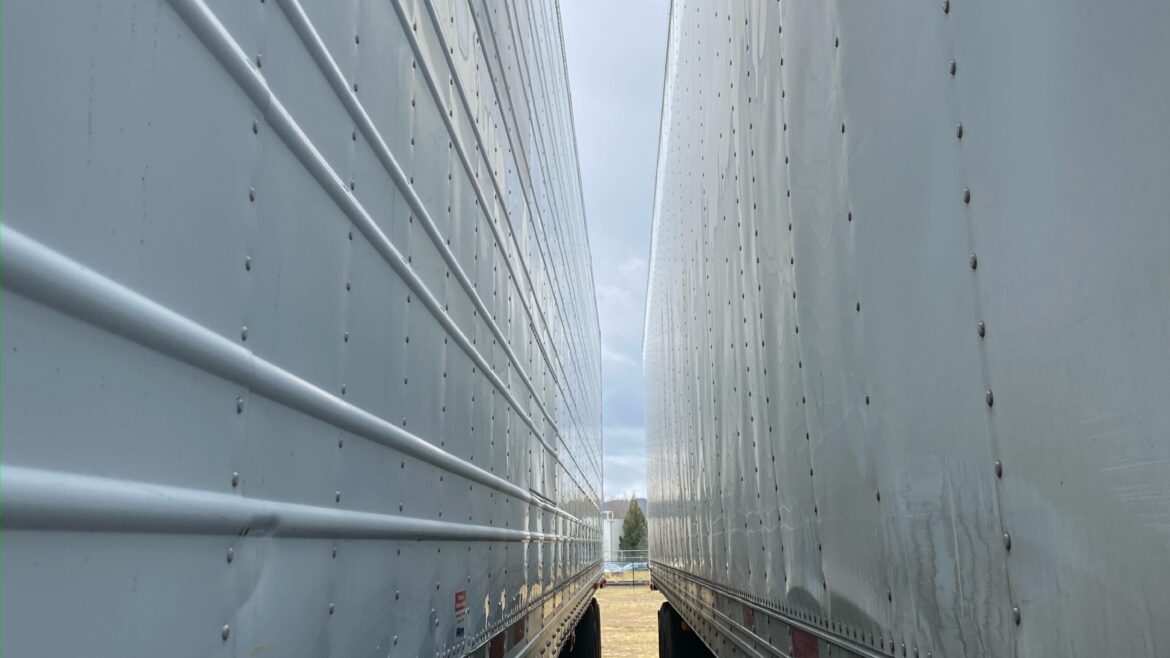
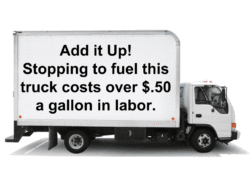
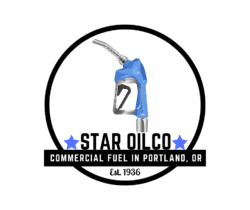

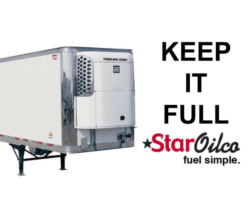
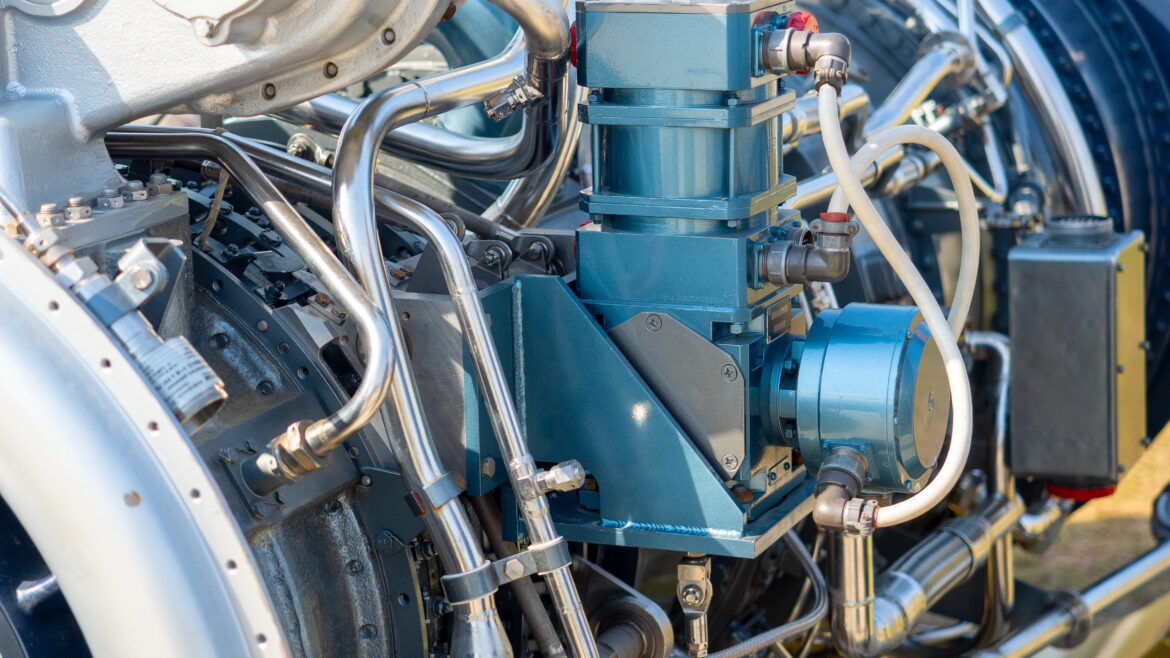
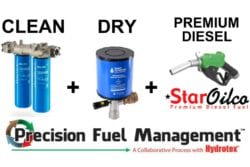

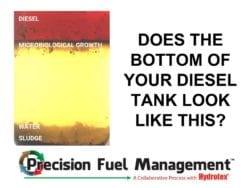
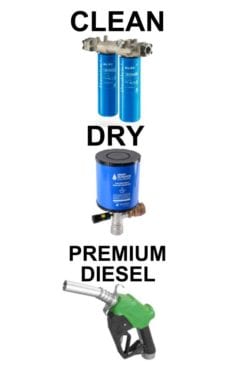

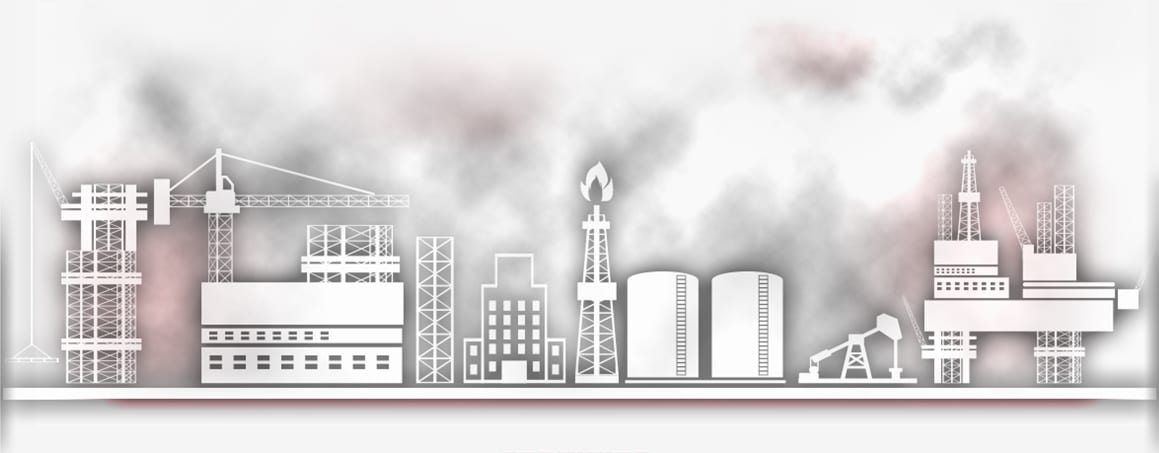
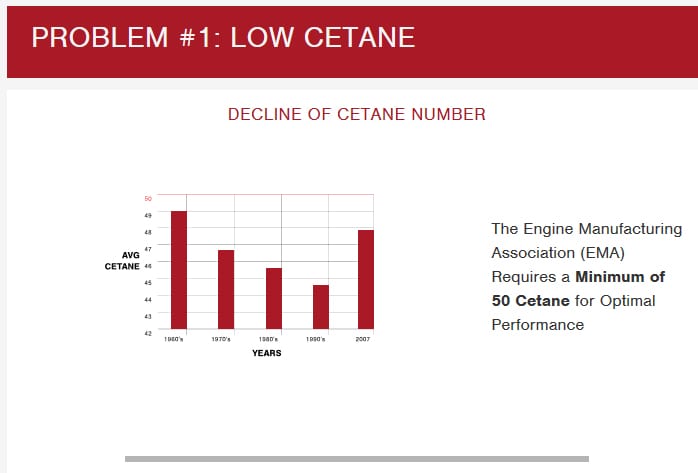
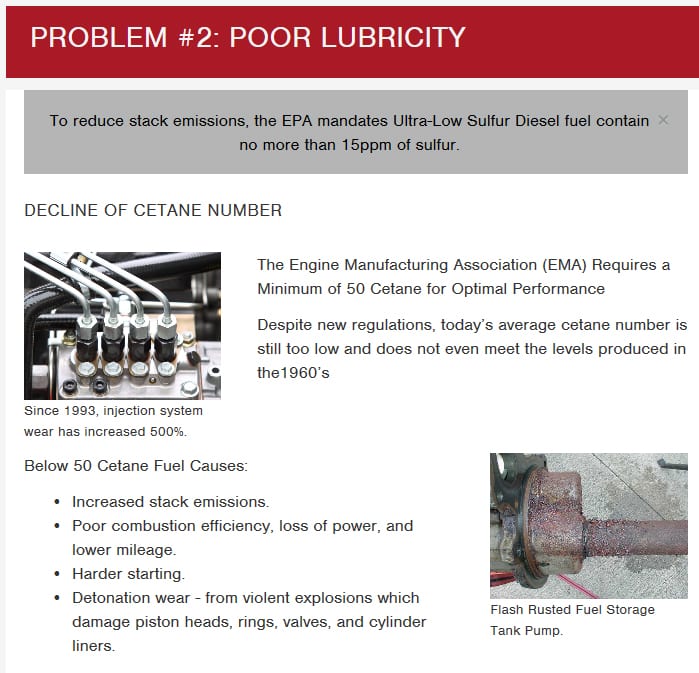
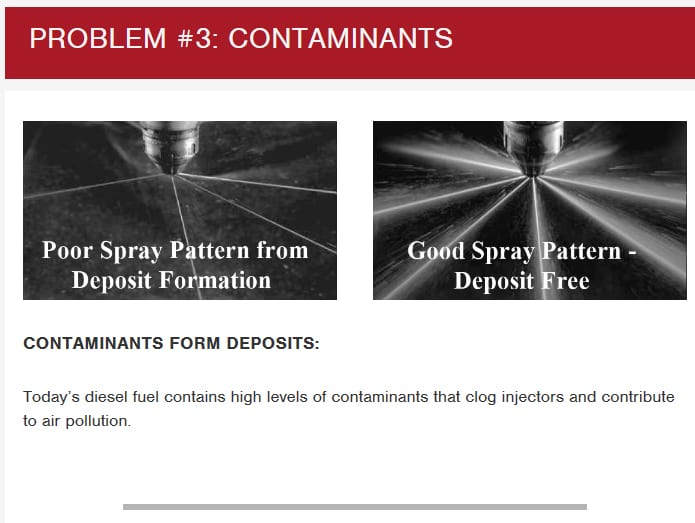
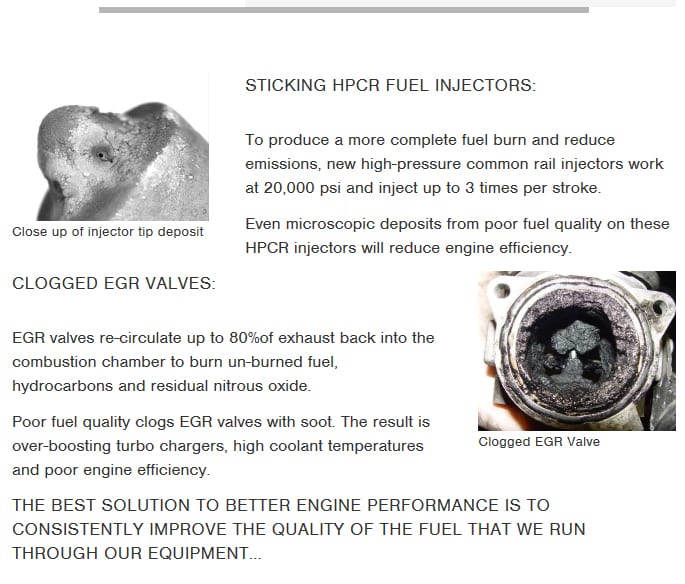
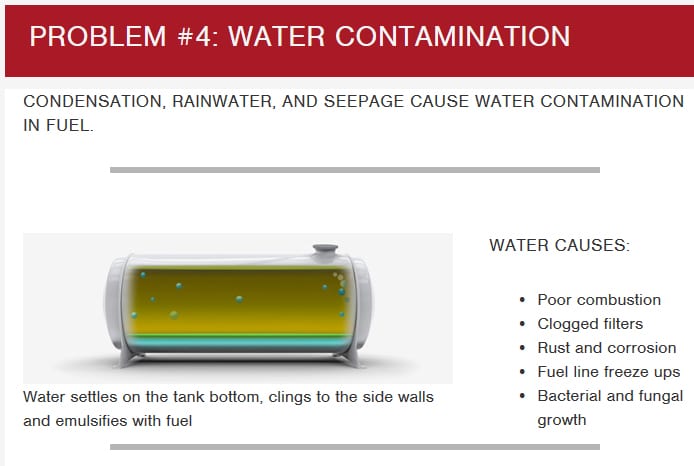
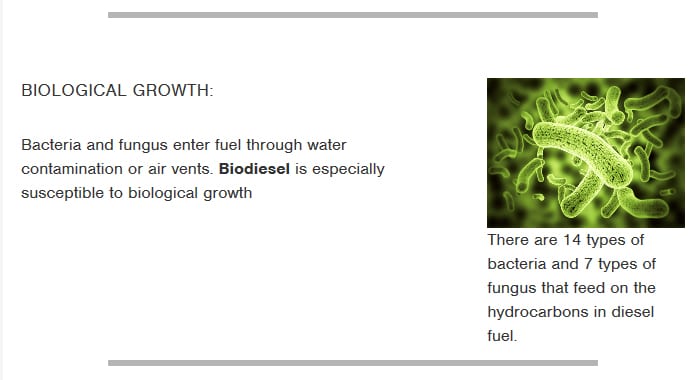
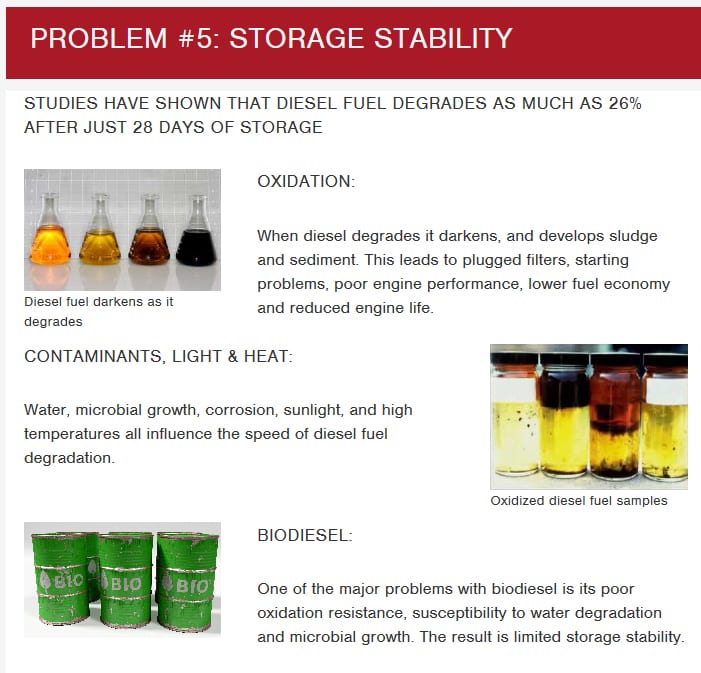
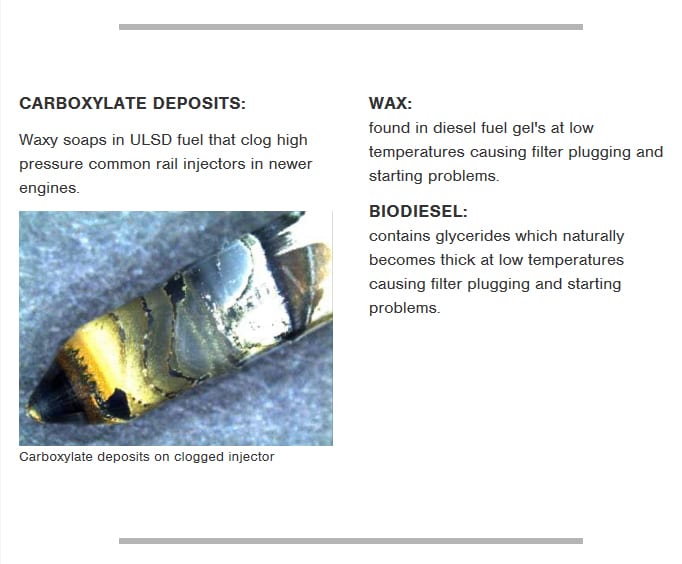
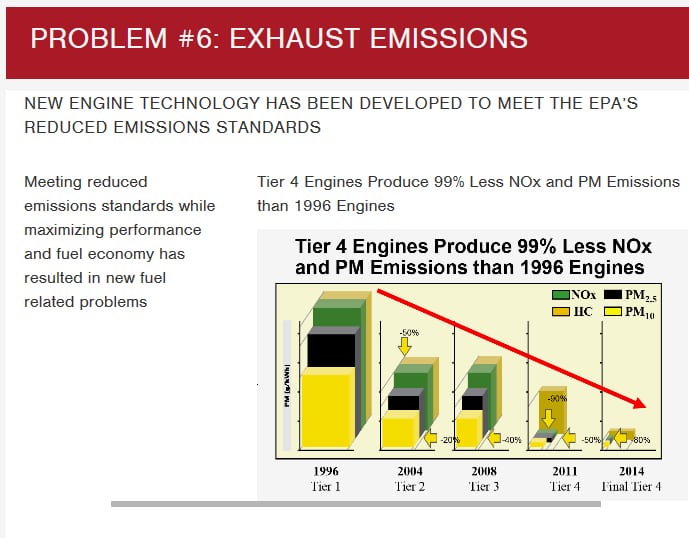


 hen and where to fuel. Avoiding high cost retail pumps, the nearly $.50 fuel higher tax difference for an Oregon fleet buying in Washington state, or if you use wet-hose mobile fueling to save labor and depend on a gallon quantity for a discounted price. A driver not following your policies is very expensive.
hen and where to fuel. Avoiding high cost retail pumps, the nearly $.50 fuel higher tax difference for an Oregon fleet buying in Washington state, or if you use wet-hose mobile fueling to save labor and depend on a gallon quantity for a discounted price. A driver not following your policies is very expensive.